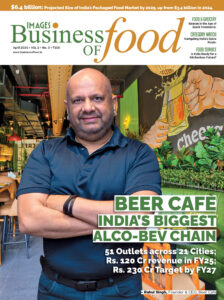A lot of founders opt for private labels as opposed to investing in huge and expensive manufacturing setups at the initial stage of their business. Retailers frequently employ private-label brands to sell their exclusive products, expand their catalog, and undercut competition.
The Indian startup ecosystem has a superlative growth trajectory, creating space for many interesting business ideas. While a‘solution to a problem’ is the very foundation of setting up a business, investing in huge and expensive manufacturing setups doesn’t seem to be a wise idea at the initial stage. Thus a lot of founders opt for private labels where a product produced by the manufacturer is marketed and sold by another company, under their brand name. Retailers frequently employ private-label brands to sell exclusive products, expand their catalogs, and undercut competition prices. In most situations, retailers rely on third-party manufacturers to produce their products. There are four kinds of private-label products: generics, premium store brands, copycats, and value innovators. There is a manufacturer for each one of these. This trend of private labeling is being extensively seen in the beauty and personal care industry, and it increases the choices for consumers.
To stand out among its competitors, every brand needs a USP. Recently, it has been observed that many products based on natural and organic ingredients are the preferred choice for consumers, and multiple brands are coming up with innovative ideas through private labels. If you want to starting your own brand, then here are some steps as to how to build a product and take it to the store shelf.
Conceptualization and Research: The very first step is to identify the market needs and brainstorm product ideas with a team comprising experienced members as well as youngsters to get a balanced perspective. Once you have narrowed down the idea, validate the concept through extensive market research. Thinking out of the box is the key here, as the personal care industry is already flooded with many brands, thus your product needs to create a niche.
Development: Once the market research shows potential for your product idea and the readiness of prospective consumers to use it, you must clearly define product specifications. At this stage, you will create prototypes, and packaging designs too. Understanding ingredients helps the product to stand out amongst the plethora of brands already present.
Supplier Selection and Negotiation: For private label products, selecting the suppliers and negotiating with them is the key stage that can make or break your product. You will need to identify a few manufacturers who can manufacture the products for you, evaluate and compare the capabilities of each, and narrow it down to one product. As you negotiate contracts, you must ensure that the quality standards are maintained and each batch comes out in the same manner as the previous one.
Manufacturing: Once the manufacturing is underway, the brand will need to coordinate production, oversee quality control, and address issues. Each batch should come out with the same consistency and perfection. The manufacturing unit should be preferably automated with minimum human touch, create small batches of products, and increase production as and when required.
Packaging and Branding: While the entire process is working towards branding, where the team is trying to create a unique identity of the product and provide an emotional connection with the customers, packaging on the other hand, aims towards product protection and choosing the right material/ bottle or pouch that is unique yet practical. At this stage, packaging design and branding elements must be compliant with the regulations.
Logistics and Supply Chain: Once the product is ready, it will need to be transported from the manufacturing unit to the warehouse and then finally to consumers in the case of D2C brands and to retailers for B2B brands. At this stage, you will need to manage transportation, optimize supply chain processes, and implement inventory management systems to ensure smooth management of the process.
Retailer Collaboration: For B2B brands you will need to pitch products to retailers, and negotiate pricing as well as the terms and conditions for long-term association. The two parties can collaborate on innovative marketing strategies that will hit the bull’s eye.
Launch and Marketing: Execute marketing campaigns across various channels to generate awareness and drive sales. While digital marketing is the need of the hour, you will also need to work towards Below The Line (BTL) marketing strategies, to ensure that the product is noticed by your target consumers.
Evaluation and Iteration: Once the product is in the market, it will help you to analyze sales data, get customer feedback, and identify areas for improvement. Based on this, you can make necessary adjustments for the next batch to improve the product and maintain its edge.
As you go through these steps in the product life cycle, each stage holds critical relevance. The product must be based on the solid foundation of the right ingredients, the correct approach, apt manufacturing processes, and maintaining honesty with your end consumers. The manufacturing unit for PL must be aligned with your ethos and be able to create exactly the kind of products you wish to produce. An experienced manufacturer is always an advantage for the brand as they provide the best product, customized as per the consumer’s requirement, and ultimately the product is what helps you sail through in the market. Effective marketing can aid you in repeating the success story of some brands that have gained phenomenal success in the last few years.
The writer is the Founder & MD of Naturo & Orgo Pvt Ltd, a brand that provides a range of natural and organic products.




